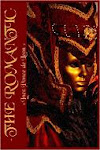A collection of short stories is harder to review than an entire book. After all, writers need a different skill set in order to produce great short stories. Critiquing an anthology requires that you be cognizant of these skill sets. One such skill is the ability to condense a potentially long, drawn-out story into a few words without losing the essence of plot, characters, and setting.
It is your turn to review an anthology. This exercise should help you recognize themes in writing, as well as appreciate the difficulty of writing a short story. You might also find out what makes good stories, especially since a short story could contain what you might see as the "meat" of a potential novel.
Choose an anthology that is written by only one author. While reviewing your chosen anthology, ask yourself the following questions:
1. What theme runs throughout the short stories in this anthology?
2. What is the best story in this anthology and why?
3. What is the worst story in this anthology and why? Would you have removed this short story had you been the publisher of the anthology? Why or why not?
4. What kind of short story (plot, characters, setting, etc) would you have added if you were the anthology's writer?
5. What skill, overall, do you think the author uses best? Such skills may include good dialogues, character development, plot unfolding, etc.?
6. In connection with question #5: Which skill should the author continue to develop?
These are only a few questions that you should ask as you write your review of your anthology. Happy reading and happy reviewing! Good luck!





